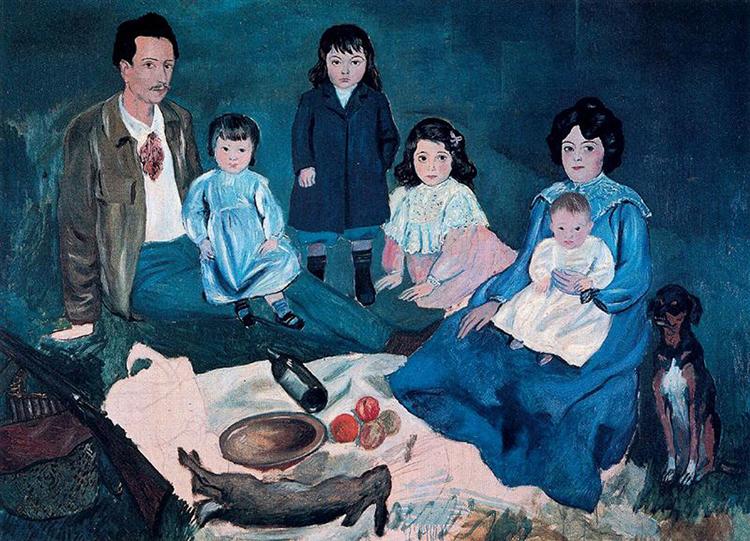Without stronger kin, the American way grows fatally weak.
Nature is Not Enough

It’s a mistake to dismiss the ideological dimension of the culture war.
One of the hallmarks of late modernity is catastrophic problems with marriage and family life. In urban areas especially, we are seeing drastically fewer marriages and most children born outside of marriage. The decline of marriage among whites without college contributes to the striking rise in deaths of despair. And so on.
Those who would defend the family cannot simply advocate for policies to address these concerns. The problem is much beyond politics in this narrow sense. We must also turn back the ideologies that prevent us from noticing the underlying problems or that insist that we view them as blessings of liberty.
We cannot let ourselves be fooled into complacency by the notion that anti-family ideologies will fall out of favor because they propose unnatural views of the world. Nature is not going to do the work for us. Nature does provide the material for family life. But the governing narratives of society play no small role in translating natural desires into civilized marriage and family life. Those narratives—those ideologies—must also be objects of our focus.
Natural desires—the urge to have children and take responsibility for them, to couple with another, to have sex, to be important to another person—can point to family life. But nature also poses problems. Will having children and being responsible for them be priorities? Will sex occur within loving relationships or not? Will relations last or not? Will men be attached to children—and do we even want them to be?
It is the reigning opinions and mores in a political community that guide its citizens toward one or another answer to each of these questions. And as American society currently stands, our reigning opinions are almost uniformly hostile to enduring marriage and family life.
Feminism is one such reigning opinion. According to feminists, family life nudges women in a thousand subtle ways into subordinate roles and away from fulfilling careers. Family life leads to disparities between men and women. As our reigning civil rights ideology traces all disparities to discrimination, it follows that justice demands minimizing and eventually abolishing marriage as a legal category and moral ideal.
Contemporary liberalism demands that the state and society be “neutral” in how they address all moral questions, so our public cannot try to point desires toward any particular way of living. While such a society will always pretend to allow “diversity,” it will also always secretly teach a corroding individualism that reverberates through the culture in ways that undermine enduring relations.
Another powerful strain of thought is sexual liberation. Liberationists think that any attempt to channel sexual desire toward enduring, fecund man-woman relations is really a form of “repression.” Repression, in turn, causes society’s ills, from crime to war to capitalism (or so it is said). The solution is to celebrate “orgasm equity” or “polymorphous perversity” on the way to a liberated, peaceful future.
Take No Prisoners
In the past it has been tempting to promote family policy without addressing these powerful ideologies—to address the very real problems while allowing academics and lawyers to concern themselves with airy-fairy theories.
That was never wise. These doctrines distort natural desires and make the average person ever-more hostile to marriage and family life. Advocates for marriage and family life must be more fighters than lovers on this front of the war on the family.
The indispensable condition for sound marriage and family policy is limiting the effects these three ideologies have in law, in our public institutions, and in our culture. This means a full-throated rebuke of their scientific basis, political clout, and cultural implications.
Feminism, for instance, is based on a lie about human persons. Few certainties of social and biological science are more readily apparent than that men and women are different. Disparities are bound to exist between two creatures so similar and different as men and women. Since feminism is based on wishing away these truths, it cannot lead most women or men to happiness or fulfillment. Sure enough, women are more unhappy, depressed, medicated, anxious, neurotic, and suicidal now, at the high crest of feminism’s umpteenth “wave,” than ever before.
Feminism has also poisoned relations between men and women. Feminism looks at workplace relations solely through the lens of sexual harassment and premarital sex through the lens of “rape culture.” Rape is a crime and sexual harassment is at least a cause of action if not a crime, to be sure. But no policy can survive which posits that one half of the citizenry is universally guilty of those crimes against the other half. Such assumptions must be identified and fought as injustices to men and women and as barriers to smoother relations between the sexes. The line between good and evil runs through the heart of each and every human being and not through races, sexes and classes, as Alexandr Solzhenistyn taught, after all.
Incentives for trade schools and manufacturing jobs, which Brad Wilcox and Mark Regnerus helpfully advocate, will not move the needle much on male behavior unless we also encourage males to be providers for families. Feminism has stigmatized this most loving attribute of male responsibility. Feminists risibly say that male breadwinning is an exercise of tyrannical control. This venomous attitude toward male provision, which turns an act of love into a pitiless transaction, must itself be stigmatized.
Sexual liberation has led to a culture where relational beings have a more difficult time building enduring relations. Young people are taught about or exposed to every kind of perversity at an earlier and earlier age. Images of children are increasingly sexualized. Students are conditioned to think of relationships not as building blocks of trust and community, but as some torturously circuitous effort to exert power over others.
Creating a culture open to marriage and childrearing is hard enough without these artificial theories compromising our ability to translate passions into mores. Guiding natural desires into workable mores is hardly automatic. Nature is not enough. Advocates for marriage and family life cannot make any headway without first clearing away the underbrush of these ideologies. Our children must be inoculated against them. So must our culture.
The American Mind presents a range of perspectives. Views are writers’ own and do not necessarily represent those of The Claremont Institute.
The American Mind is a publication of the Claremont Institute, a non-profit 501(c)(3) organization, dedicated to restoring the principles of the American Founding to their rightful, preeminent authority in our national life. Interested in supporting our work? Gifts to the Claremont Institute are tax-deductible.
You can’t preserve something that no longer exists.
It’s time for conservatives to get real.
We must wrest our families back from our decadent overlords.
Individual liberty can’t stand on its own.
The politics of nostalgia can’t meet the moment.






